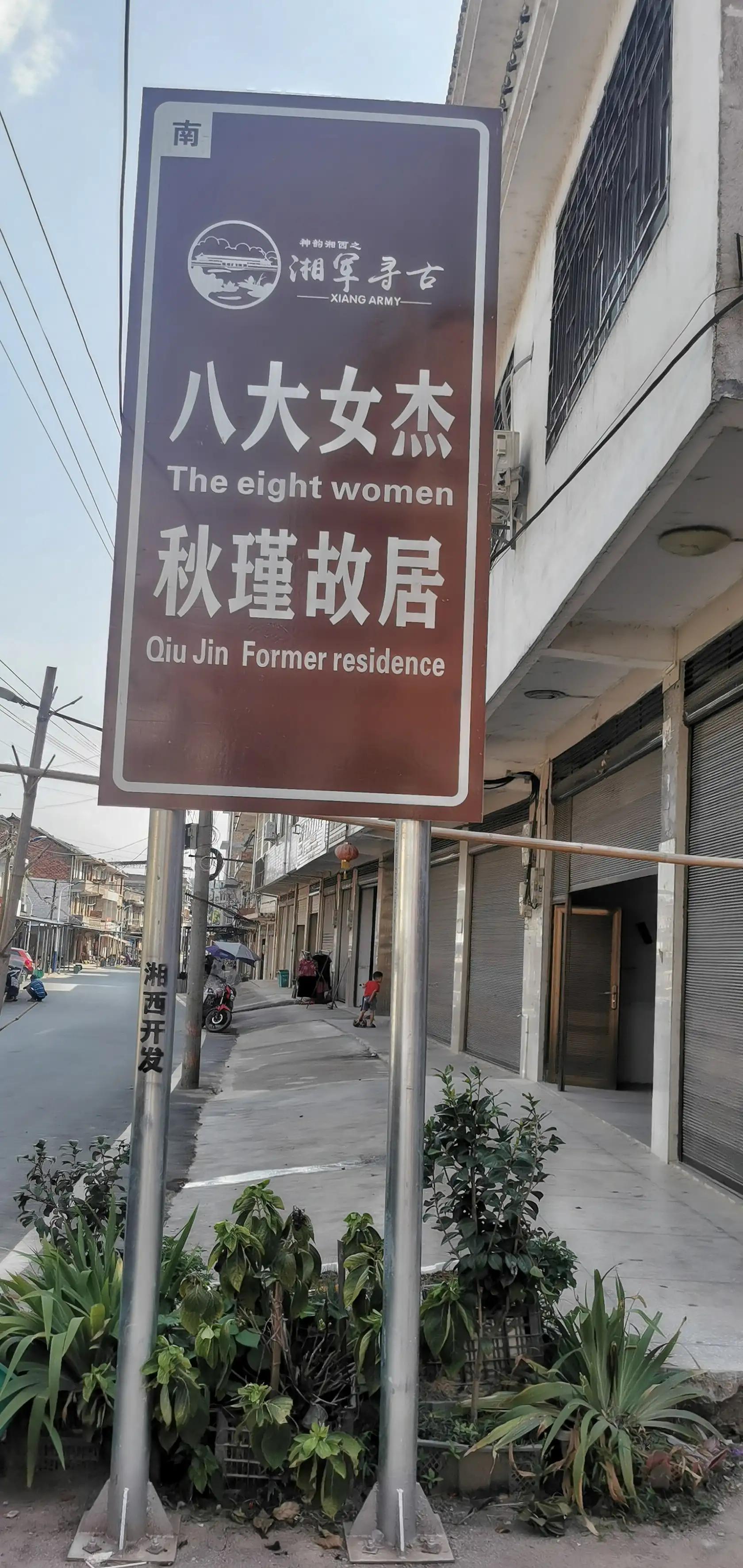
Qiu Jin (November 8, 1875 – July 15, 1907), a modern democratic revolutionary volunteer, formerly known as Qiu Yujin, Zi Xuanqing, Danwu, Milk Name Yugu, changed his name to Jin after Dongdu, the character (or alias) Jingxiong, called himself "Jian Hu Lady", pen name Swing, once used the pen name Bai Ping. His ancestral home was Shanyin (present-day Shaoxing), Zhejiang, and he was born in Minxian County,Fujian (present-day Fuzhou).
He is an advocate of Chinese feminist and women's academic thought, and a volunteer of the modern democratic revolution. The first revolutionary pioneers who sacrificed their lives to overthrow the Manchu Qing regime and thousands of years of feudal rule made great contributions to the Xinhai Revolution. Advocating feminist feminism has played a huge role in promoting the development of the women's liberation movement. In the early morning of July 15, 1907, Qiu Jin calmly took up his righteousness at the XuantingKou of Shaoxing, at the age of 32.
In 1894, when his father Qiu Shounan was serving as the governor of Xiangxiang County, he assigned Qiu Jin xu to Wang Tingjun, the god of Heye Town, Shuangfeng County, as his wife. In 1896, Qiu married Wang. Wang Tingjun opened the "Yiyuan Pawnshop" in Xiangtan, and Qiu Jin lived in Xiangtan and often returned to his in-laws' house.
When Qiu Jin was in her in-laws' Twin Peaks Lotus Leaf, she often interacted with Tang Qunying and Ge Jianhao, "love brothers and sisters, close as sisters, often gathered together, or drank and wrote poetry, or played yuefuqin, or played chess and talked, and the exchanges were very close." Later, the 3 people were known as the "Three Female Masters of Xiaoxiang".
In the summer of 1904, Qiu Jin broke through the shackles of the feudal family and traveled to Japan at his own expense to study in Japan, seeking the truth of saving the country and saving the people. She actively participated in the revolutionary activities of students studying in Japan, and the "Partridge Heaven" she created expressed her determination to sacrifice for the country - "The motherland can't help but feel the sinking of the motherland, idle overseas to find friends." Jin Ou has been short of always need to be made up, and he dares to sacrifice himself for the country. Sighing and drifting zero, Guan Shan Wanli made a majestic journey. Hugh said that the woman was not a British object, and the night dragon spring wall sounded. ”
In 1905, Qiu Jin returned to China to join the Guangfu Society. In July of the same year, he went to Tokyo, Japan, joined the League, and was elected as a reviewer of the Review Department and the main ally of Zhejiang. The following year, he returned to China and participated in the establishment of the China Public School in Shanghai. In January 1907, she founded China's first women's newspaper, China Women's Daily, calling on women to fight for liberation. In February 1907, he returned to Zhejiang and took over as the superintendent of the Shaoxing Datong School, and together with Xu Xilin, he planned to launch an armed uprising in Anhui and Zhejiang.
In order to effectively organize the forces of the armed uprising, Qiu Jin rectified the organization of the GuangfuHui, contacted the party forces, and organized the "Guangfu Army". She contacted Xu Xilin and formulated a plan for the Anhui-Zhejiang uprising, "focusing on Anqing and Shaoxing as the center." Datong Academy became the base camp of the Zhejiang Revolution at that time. On July 6, 1907, the Anqing Uprising failed, and on July 13, qing soldiers surrounded the Chase Academy, and Qiu Jin was unfortunately arrested. She was unyielding, hated her ambitions for not being rewarded, and wrote the desperate poem of "Autumn Wind and Autumn Rain Sorrowful People", and on July 15, she calmly took revenge at the Xuan pavilion in Shaoxing.
After the Xinhai Revolution, the Qiu Jin Martyrs Monument was erected at her righteous place, and the coffin of the martyrs was buried on the banks of the Xiling Bridge in Hangzhou's West Lake. In the 1950s, the Xinhai Revolutionary Martyrs Cemetery in Jilong Mountain, Hangzhou was relocated, and now there is a full-body statue of the martyr Qiu Jin on the side of xiling bridge, which is remembered by the world. In December 1912, Sun Yat-sen came to Hangzhou to pay tribute to the Autumn Society, and gave him the title of "Hero of the Towel". In 1939, Zhou Enlai toured Zhejiang and wrote an inscription in Shaoxing, "Don't forget to see the legacy of the heroine of the lake, hoping to win glory for my daughter in Yuedong", calling on the world to learn from Qiu Jin.